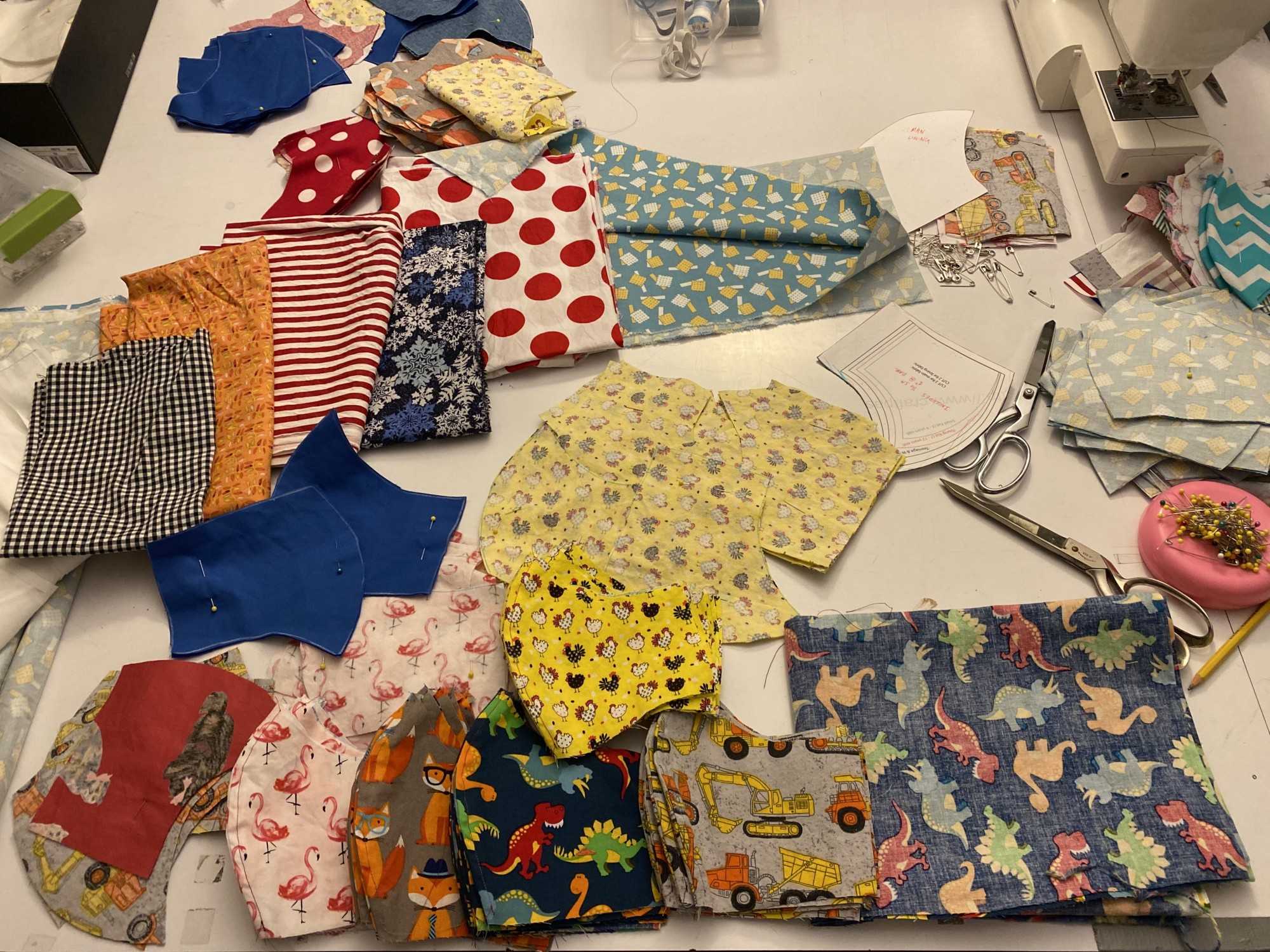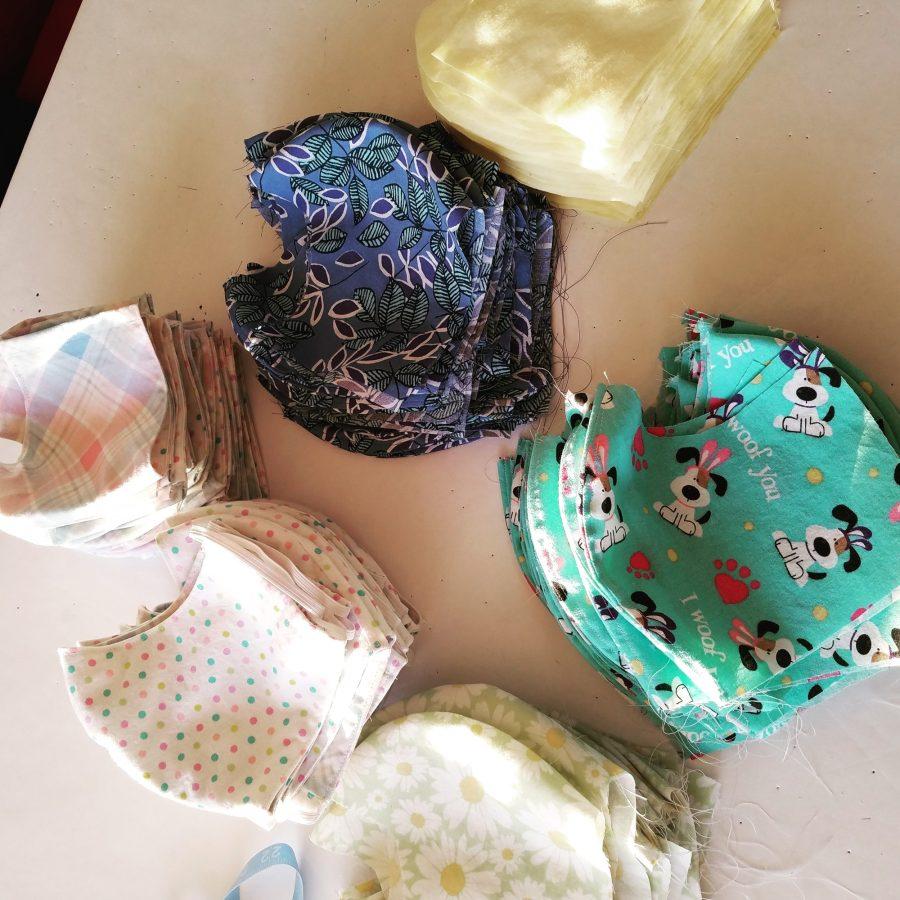It has been consistently reported that as a result of the coronavirus pandemic, there has been a great shortage and need for face masks. The students and faculty of the University of Arizona School of Theatre, Film & Television responded quickly to this need within the Tucson community.
A group of theater students and costume makers have teamed up to make masks for health workers across Tucson.
After discussing the virus with Master of Fine Arts students, TFTV Costume Shop Manager Maryann Trombino-Arthur decided it would be a good idea for them to start making masks. Many of them are now making face masks on a volunteer basis in addition to working from home.
Approximately 10-12 people are working on masks according to Trombino-Arthur. She involved two of her colleagues and the rest are students involved in theater.
“We all have our skills and our talents and we wanted to put them to good use,” Trombino-Arthur said. “We wanted to give back to the community and I think part of that is because we are in theater, it comes from the heart.”
RELATED: Artists adapting to closures
According to Trombino-Arthur, they are donating masks to anyone who reaches out to them. So far, they have donated to the University of Arizona Medical Center, St. Joseph’s Hospital, the Tucson Medical Center, various pediatric centers, animal hospitals and more.
MFA student Rachel Wilkins is a main point of contact for getting these masks. After making a Reddit post offering masks, she started receiving requests.
Wilkins found solace in making these masks. Classes moved online right in the middle of her thesis and, on top of that, all theater productions were canceled.
“I was sitting at home for three days straight just being angry,” Wilkins said. “I was tired of being angry, so I decided this would be the best use of my time. Everybody needs them.”
The group is producing two types of masks: flat masks and curved masks. Wilkins read studies about the best material for masks and saw that the best fabric to use was two layers of 100% cotton, according to the Centers for Disease Control and Prevention. So, Wilkins conducted “burn tests” to see if the material they use are 100% cotton.

According to Trombino-Arthur, the majority of masks they make for hospitals are the rounded, curved masks. She explained that these masks are worn over personal protective equipment that health workers wear. According to her, with disposable masks, nurses and doctors need to change masks after interacting with each patient. But due to the national shortage, they are unable to do this safely and consistently.
To optimize the supply of N95 respirators and surgical masks, the CDC recommends the use of these reusable face masks. Curved masks are not a replacement for reusable masks, Trombino-Arthur explained, but extend the life of the disposable equipment underneath.
Since the beginning, the group has made hundreds of masks according to Trombino-Arthur. Wilkins said that “on a good day” she is able to make about 45 masks.
Ryan Moore is a theater MFA student who has also been involved in this initiative. He said that in addition to making some masks, he has helped organize donation requests and coordinated pick-up orders and deliveries.
RELATED: UA College of Medicine to hold graduation early in light of COVID-19 pandemic
Moore said that with all shows and productions being canceled, they decided to focus their “efforts, skills and time” they had set aside for the productions to this initiative.
“We have the skills, now the time, and the materials, so it was kind of a no brainer,” Moore wrote in an email.
Elizabeth Eaton, also an MFA student, has been using her skills as a costume designer to make masks as well.
“I was very excited to see an opportunity to use my skills to help the community, I don’t often get that chance,” Eaton said in an email. “These masks are so simple to make and they are in such high demand right now.”
The initiative has many facets, according to Trombino-Arthur. While some sew the masks, others like Moore work administratively and some support the initiative by cutting out fabric and donating materials. Trombino-Arthur said they welcome anyone who wants to help in any way.
Wilkins said that there are many tutorials available online to make masks — even if you do not know how to sew, you can still help.
“If you’re not a seamstress or good at sewing and you want to help, ask around and see if anyone has any cotton or elastic they would like to donate to the cause,” Wilkins said.
Eaton said they are welcoming and encouraging donations of 100% cotton fabrics, 1/4-inch or 3/8-inch elastic and thread.
Trombino-Arthur found it fitting that theater students were among the hoards of community members who saw an opportunity in the things they lost.
“Theater is very community oriented,” she said. “We are happy to continue to be a part of the community and help out.”
Follow Isabella Barron on Twitter















